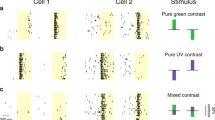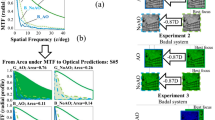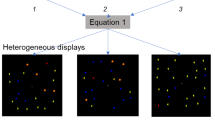Abstract
I HAVE read with great interest the letters of Drs. Stiles, Thomson and Pirenne in Nature of February 10, in which among other things König's early work is mentioned. Some experiments to be described below indicate, I think, that the factors involved are more complicated than has previously been supposed. Mr. Willmer is under the impression that it is only the fovea centralis that suffers from some form of dichromatism. I find, on the contrary, that it is a considerable area of the retina which is affected at times by this defect; all that has to be done to make the greater part of the retina appear dichromatic is sufficiently to reduce the visual angle of the test object.
This is a preview of subscription content, access via your institution
Access options
Subscribe to this journal
Receive 51 print issues and online access
$199.00 per year
only $3.90 per issue
Buy this article
- Purchase on Springer Link
- Instant access to full article PDF
Prices may be subject to local taxes which are calculated during checkout
Similar content being viewed by others
References
Nature, 153, 774 (1944).
Author information
Authors and Affiliations
Rights and permissions
About this article
Cite this article
HARTRIDGE, H. Colour Vision of the Fovea Centralis. Nature 155, 391–392 (1945). https://doi.org/10.1038/155391a0
Issue Date:
DOI: https://doi.org/10.1038/155391a0
This article is cited by
-
‘Foveal Tritanopia’
Nature (1947)
-
The Change from Trichromatic to Dichromatic Vision in the Human Retina
Nature (1945)
-
The Anti-Chromatic Reflex
Nature (1945)
-
Colour Sensitivity of the Fovea Centralis
Nature (1945)
Comments
By submitting a comment you agree to abide by our Terms and Community Guidelines. If you find something abusive or that does not comply with our terms or guidelines please flag it as inappropriate.



